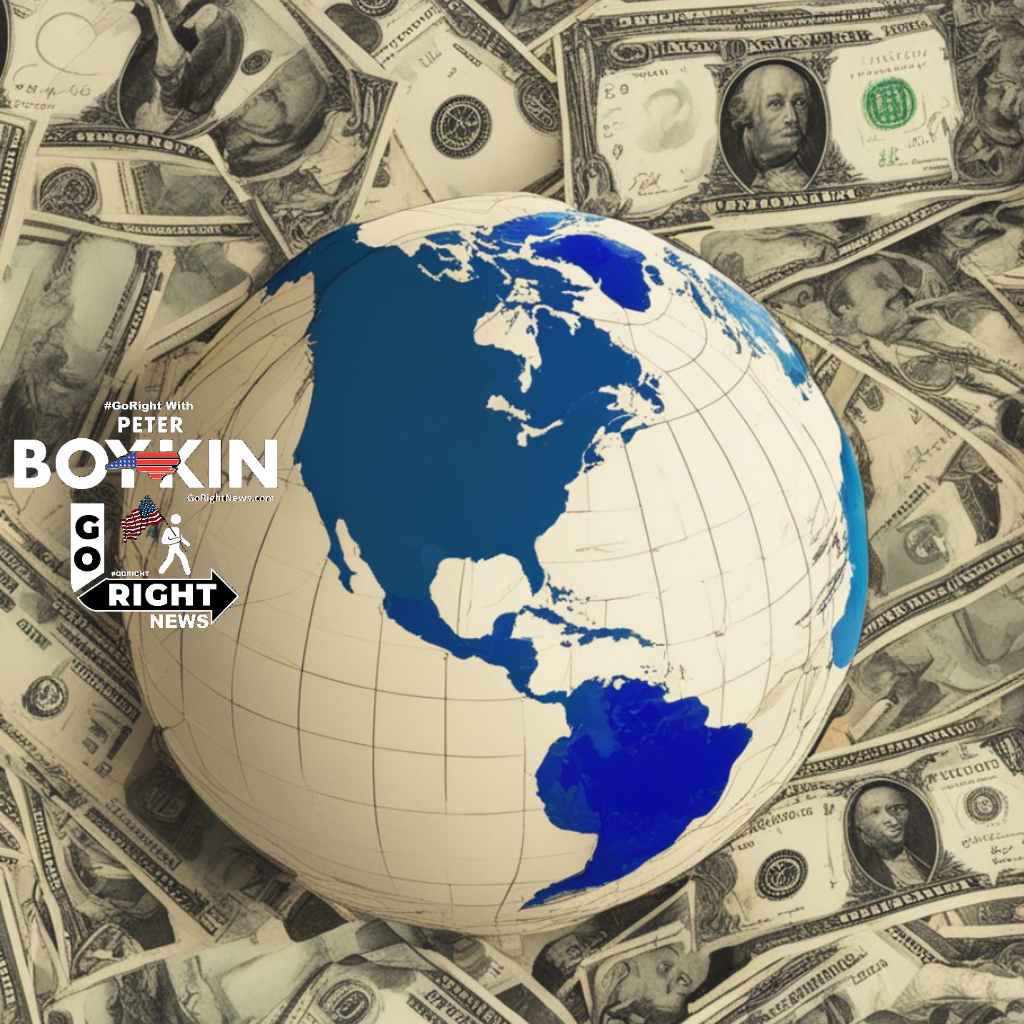Exploring Potential Changes in the Global Currency Landscape
Shared By Peter Boykin – American Political Commentator / Citizen Journalist

Exploring Potential Changes in the Global Currency Landscape
Exploring Potential Changes in the Global Currency Landscape
As global dynamics continue to evolve, there are discussions underway among various nations about the role of the U.S. dollar and potential alternatives. Notably, BRICS nations—comprising Brazil, Russia, India, China, and South Africa—are convening in South Africa for their first in-person meeting since the Covid-19 pandemic. This assembly has given rise to speculation that the group is exploring the possibility of establishing a new currency to potentially challenge the prominence of the U.S. dollar.
Origin and Objectives of BRICS: BRICS was established in 2009 with the inclusion of South Africa in 2010, bringing together these nations with the goal of enhancing collaboration in areas such as development, trade, and investment. Collectively, these nations represent a substantial portion of the global economy, encompassing around 40% of the world’s population and a comparable economic output to that of the U.S.
Agenda and Rumors: Although the primary agenda of the summit pertains to expanding the bloc’s membership—given interest from over 40 countries including Saudi Arabia, Argentina, Egypt, Iran, Cuba, and the United Arab Emirates—there are murmurs suggesting that BRICS is contemplating the exploration of a new currency. This hypothetical currency could potentially be international in scope and, in certain discussions, even linked to gold.
Views from Officials: While Anil Sooklal, South Africa’s Ambassador at Large for Asia and BRICS, has denied immediate discussions about a new currency, he underscored the shift toward a multipolar global trading system. Brazilian President Lula, for instance, has raised the idea of a currency for trade between BRICS countries.
International Repercussions: The shift away from the dollar gained traction during the initial stages of the Ukraine conflict, when efforts to impact the Russian economy inadvertently raised concerns among other nations holding U.S. dollar reserves. The incident highlighted the vulnerability of countries relying heavily on dollar-denominated reserves.
Diverse Perspectives: Notably, there are varied viewpoints on the potential success of such endeavors. Jim O’Neill, who originally coined the term ‘BRIC,’ has expressed skepticism about the bloc overtaking the U.S. dollar due to internal differences among its member nations.
Historical Context: The U.S. dollar’s dominant role as the world’s reserve currency traces back to the Bretton Woods Conference after World War II, where countries pegged their currencies to the dollar, which was convertible to gold at that time.
As discussions and considerations continue to unfold, the potential implications of these deliberations on the global financial landscape remain a subject of ongoing observation and analysis.
[Source: Reuters, ZeroHedge, Fox Business, Fortune]


